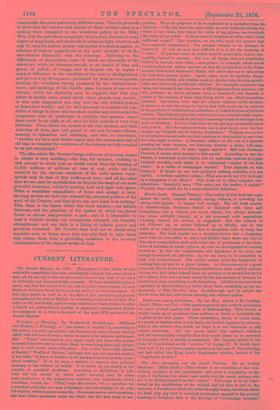Martin Laws. (Samuel Tinsley.)—The author of this book .has eons"
mitted the fault, common enough among authors, of crowding his canvas with figures. It begins well enough. The old head master of Steenborough Grammar - School is sketched with force and distinctness, and a subject, not novel, indeed, but always interest- ing when skilfully treated, of a lad possessed with aspirations reaching beyond his station, is suggested. But the subject is not• followed up, or rather followed up so fitfully, and in the, midst of so many interruptions, that it altogether fails to keep the. attention. The head master has a daughter-in-law and a daughter,. each with one love-affair or more, and besides these there are four or five other young ladies, each with some sort of pretension to the char- acter of heroines, in whose offal es de cceur we are expected to concern. ourselves. In fact the complication and digression of the story are enough to exhaust all patience. As for the hero, he is permitted to sink into insignificance. The author cannot resist the temptation of making him out heir to a great fortune. As the possessor of a great property, Martin Laws is not distinguishable from other wealthy squires. As one who had raised himself from the position of an errand-boy by his own efforts, if he had not been raised by the interference of fortune, he would have been something worth describing. All this is the more to be regretted, as Martin Laws is a really clever book, reminding us not un- pleasantly of Miss Sewell's tales. Steenborough and its people are drawn from the life, and drawn cleverly, but without malice.






























 Previous page
Previous page